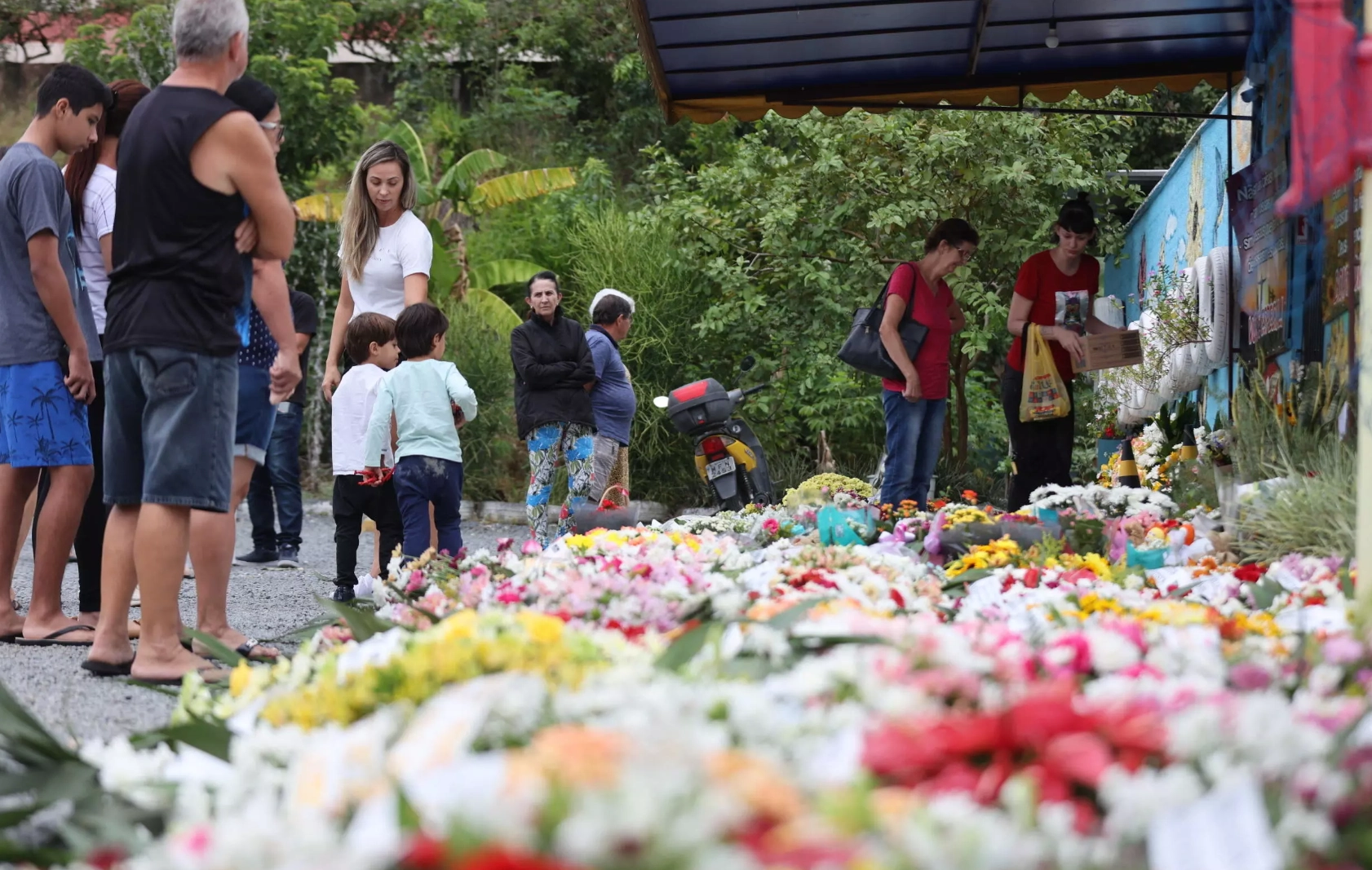Coauthor Paula Alves and Michele Bravos
Between 2002 and 2023, there were 24 attacks against schools in Brazil, resulting in 45 deaths and 137 injured people, according to the Sou da Paz Institute. In a fragile – though recovering – democracy, the dispute in the school environment is marked by ideologies that privilege violent extremism, motivated (among other factors) by hate speech, and economic interests. Without a governmental direction aligned with this perspective, human rights education may be restricted to isolated initiatives, which is a loss for society.
The year 2023 continues to be marked by the consequences of the COVID-19 pandemic. According to the School Census, Brazilian public schools spent an average of 279 days closed in 2020, a much higher figure than in Argentina (199) and Colombia (173). In 2021, an attempt was made to implement the hybrid modality, but without much success, especially in public schools, where students in the last years of primary and secondary education had an average of 102 days of distance classes, compared to 38 days in private schools.
As local and global studies have shown, the social isolation to which young people have been subjected at a crucial time for their development has generated impacts that go far beyond learning deficits, reaching aspects of mental health and the ability to socialize with their peers. School is essential for alterity and reflects social dynamics of conflict and dialogue, representing a unique opportunity to experience belonging. The denial of this coexistence had consequences. The challenge – which already existed before the pandemic – of ensuring that the school environment is conducive to critical learning and harmonious coexistence across differences has become even more significant.
A new phenomenon, old violence
As UNESCO points out, the violence that has flared up with the reopening of classrooms takes many forms and involves many actors. It ranges from bullying to physical and sexual assaults, it harms the entire school community and causes various damages, such as impacts on school performance and absenteeism. The scenario becomes even more complex when violence acquires a new dynamic: premeditated attacks against schools.
According to the Sou da Paz Institute, of the 24 attacks against schools in Brazil, 12 attacks took place between 2002 and 2021, six in 2022, and another six in the first half of 2023 alone. The exponential growth of these episodes has not only caused social alarm, but also a sense of urgency to understand this phenomenon, especially on the part of public managers, to produce a rapid and effective response. We are faced with violence classified as violent extremism, usually carried out by young, white, heterosexual, and radicalized men.
More important than distinguishing between these phenomena, the usual and extreme violence occurring in schools and extremist violence against schools, is the perception of how the two are related. According to the 2006 World Report on Violence against Children, schools create and reproduce the political and socioeconomic conditions of each context, as well as prevailing values and social norms, and “by being victims, perpetrators and witnesses of violence, children learn that violence is an acceptable means for the strong and aggressive to get what they want from the more fragile, passive or peaceful.”
Perhaps this is why it is so disheartening to note that it is only when the effects of this structural violence become acutely apparent that we become aware of its seriousness. As understandable as this approach is, it is necessary to recognize how challenger it is to build policies on the urgent need to respond to a crisis.
Late action is reaction
A recent assessment conducted by the Auschwitz Institute for the Prevention of Genocide and Mass Atrocities in São Paulo schools revealed that, before participating in a project of the organization focused on citizenship education, only 20% of students in the last grades of primary and secondary school did know what human rights were. After the activities, 47% learned about the topic, 42% were able to explain what human rights are using examples, and 5% were able to articulate the concept of human dignity.
In addition to measuring changes in knowledge, the evaluation revealed transformations in values, attitudes and skills related to respect, empathy, coexistence and, democratic participation, in a very positive way. These results legitimize the importance of the school as a space for prevention and reinforce what other organizations have already pointed out: efforts work and are essential to guarantee the exercise of citizenship in a plural and inclusive manner. Violent extremism promises precisely the opposite.
In reference to the work of preventing heinous crimes – which can be applied analogous to the context of violence in schools – prevention will occur if we are able to recognize the signs early. Acting before reacting is the best option. Action focused on responding to a crisis that has already begun is less diverse, less effective, and more expensive. A reactive mentality leads to fragmented solutions and ad hoc policies, which respond to one-off challenges and do not address a complex social movement that demands comprehensive, long-term solutions. As a result, there is a tendency to relax the perception of the urgency of the problem once the peak of the crisis is over, often leading to a discontinuous investment in addressing the real causes of the problem.
Long-term educational interventions, with government strategies that effectively change the school experience, maybe a way forward. The results are incremental and slow, and are no substitute for emergency action, nor can they alone definitively prevent violence from occurring. However, they will undoubtedly contribute to establishing more just societies in which these phenomena occur less and less and in which citizens are prepared to act sooner and better.
*This text is part of the project (Re)connecting: bringing people together to overcome violence in schools, carried out by the Aurora Institute, with the institutional support of L21. To support the initiative, visit: https://apoia.se/reconectar_escolas
Paula Alves is responsible for the Warren Education Policy Program at the AIPG. M.A. in Education and International Development from the University of Birmingham.
Michele Bravos is an Executive Director of the Aurora Institute for Human Rights Education. Master in Human Rights and Public Policy from the Pontifical Catholic University of Paraná (PUCPR).
**Translated by Janaína Ruviaro da Silva from the original in Portuguese.











